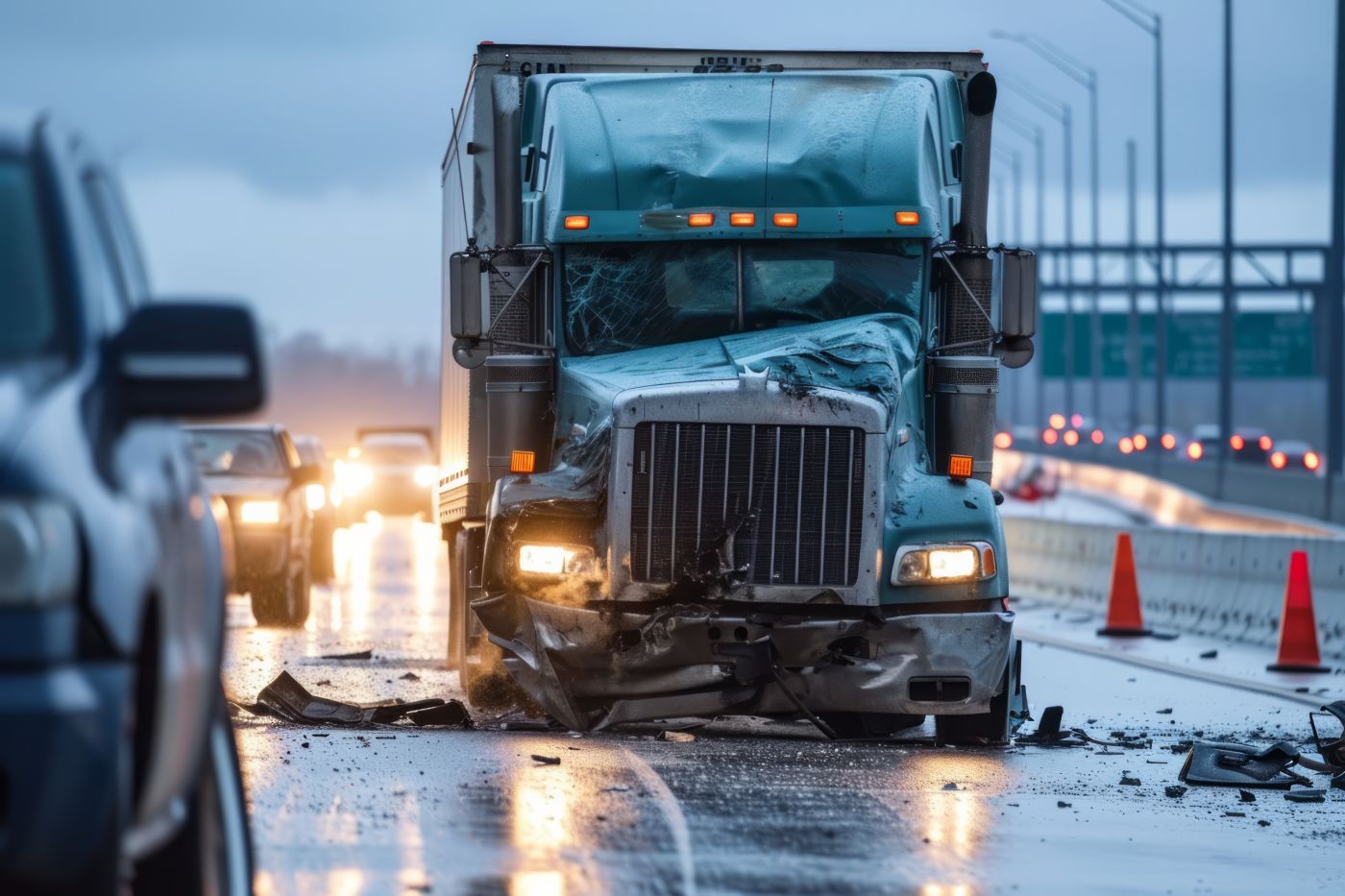
Rideshare services have changed the way people travel, but accidents involving these vehicles can be complicated. Determining liability after a rideshare accident often involves multiple parties and different insurance policies. Knowing your rights and the steps to protect your claim is essential when pursuing compensation.
At Guerra Law Firm PC, our McAllen, TX personal injury lawyers help clients throughout Southern Texas with rideshare accident claims. Our firm uses local knowledge and legal experience to handle every case efficiently. Contact us today to protect your interests and receive guidance through the claims process.
How Rideshare Companies Change Liability Determinations
Liability in a rideshare accident can be more complicated than traditional car crashes. Multiple parties, including the driver, the rideshare company, and other motorists, may share responsibility. Determining fault early is crucial for protecting your claim.
Assessing who may be at fault early helps prevent delays and strengthens your position when pursuing a claim. Understanding liability lays the groundwork for managing insurance coverage, which often determines the outcome of a rideshare accident claim.
Insurance Coverage for Rideshare Drivers and Passengers
Insurance coverage after a rideshare accident depends on whether the driver is logged into the app, carrying a passenger, or offline. Personal auto insurance policies often exclude accidents while the driver is working for a rideshare company. In those cases, the rideshare company’s insurance becomes the primary source of protection.
Rideshare drivers and passengers often face uncertainty about which insurance applies in a given situation. Knowing the details of coverage is essential before filing a claim, as gaps in insurance can create complications that affect how quickly the claim is resolved.
Steps to Take Immediately After a Rideshare Accident
The moments after a rideshare accident are critical for protecting your rights and building a strong case. Acting quickly assures that evidence is preserved and helps demonstrate fault clearly. Reporting the accident promptly and documenting the scene can prevent disputes with insurance companies.
Taking the right actions immediately after a rideshare accident can make a significant difference in how your claim is handled. To protect your rights and strengthen your claim, these essential steps should be taken after a rideshare accident:
Document the scene: Take clear photos of all vehicles, damage, and road conditions. These images help establish what happened and can serve as evidence during the claims process.
Report the accident: Notify local authorities and the rideshare company as soon as possible. Timely reporting assures compliance with policies and creates an official record.
Gather witness information: Collect names, contact details, and statements from anyone who saw the accident. Witness accounts can strengthen your version of events and support liability determination.
Once you’ve documented the scene, reported the accident, and gathered witness information, you’ll have a clearer picture of the events. Completing these steps allows you to move into identifying responsible parties and understanding shared liability.
Identifying Responsible Parties in a Rideshare Accident
Determining responsibility in a rideshare accident often involves multiple layers. The driver, the rideshare company, and other motorists may each bear some liability. Working with an experienced rideshare accident attorney can help analyze the situation and identify all responsible parties.
Clearly identifying liability is essential for avoiding delays or disputes during the claims process. Once parties are determined, legal challenges may arise that require careful management.
Common Legal Challenges in Rideshare Accident Claims
Rideshare accident claims can face unique legal obstacles. Conflicts between insurance policies, delays in claim processing, and involvement of multiple parties can complicate settlements. Insurance adjusters may scrutinize claims more closely due to corporate procedures or coverage limits.
Understanding these challenges helps prepare for negotiation and assures your rights are protected. After addressing these legal hurdles, it’s important to consider financial recovery options.
Financial Recovery Options After a Rideshare Accident
Recovering losses after a rideshare accident involves multiple types of damages, including medical expenses, lost wages, and property damage. Some injuries may require long-term care, which adds additional costs. Recovery can also account for pain and suffering in serious cases.
It’s important to know how to recover losses. Some key aspects of financial recovery after a rideshare accident include:
Medical expenses: This covers hospital bills, follow-up visits, and any rehabilitation costs related to injuries from the accident. Proper documentation is crucial to make sure all medical costs are included in the claim.
Lost wages: Time away from work due to injuries or recovery can result in significant financial hardship. Compensation for lost income assures that the economic impact of the accident is mitigated.
Property damage: Vehicle repair or replacement costs are included in claims. Evidence such as repair estimates and photos helps substantiate the financial losses.
Knowing these recovery options helps victims make informed decisions about pursuing a claim. Evidence and documentation then connect directly to the next focus: technology and data.
Technology and Data in Rideshare Accident Cases
Modern rideshare apps generate detailed records that can be crucial in a rideshare accident claim. GPS tracking, ride logs, and app activity provide timelines that establish fault. Screenshots and company-provided reports can clarify what happened leading up to the accident.
These digital records often play a significant role in proving liability and can be combined with physical evidence to strengthen a claim. Accessing this data early assures nothing is lost or overlooked.
Medical Documentation and Treatment Following a Rideshare Accident
Prompt medical evaluation is critical after a rideshare accident. Even minor injuries should be documented to establish a clear connection to the crash. Keeping thorough medical records assures that claims reflect the full scope of injuries and treatment.
Seeking prompt medical care assures that all injuries are properly evaluated and treated. Accurate documentation also supports long-term recovery planning and can prevent disputes with insurance providers about the extent of injuries.
Negotiating With Insurance Companies After a Rideshare Accident
Insurance negotiations after a rideshare accident can be complicated, especially when multiple policies are involved. Adjusters may attempt to minimize payouts or attribute fault to the wrong party. Maintaining organized records and clear communication strengthens your position during negotiations.
An experienced rideshare accident attorney can advocate effectively, helping to make sure insurance companies consider all aspects of the claim. Strong negotiation skills often make the difference in resolving the case efficiently.
Preventing Complications in Rideshare Accident Claims
Preventing delays and complications begins with understanding the claims process and following best practices. Clear communication, thorough documentation, and timely reporting all reduce risks of dispute. Organized records from the accident scene, medical visits, and insurance correspondence are invaluable.
Following best practices after a rideshare accident can reduce delays and simplify the claims process. Some key practices to prevent complications include:
Maintain detailed records: Keep copies of all accident reports, medical bills, and correspondence. Well-organized documentation reduces the chance of mistakes or missing information.
Communicate carefully: Speak clearly and accurately with insurance representatives, avoiding speculation about fault or damages. Accurate communication prevents misinterpretation and unnecessary delays.
Follow legal advice: Listening to guidance from an experienced attorney helps avoid common pitfalls and assures that each step strengthens your claim.
By consistently documenting the accident, communicating carefully, and following legal advice, you reduce the risk of delays or disputes. Following these practices helps maintain a clear path through the claims process and prepares you for potential litigation.
Trends and Future Developments in Rideshare Accident Litigation
Rideshare accident litigation continues to evolve as courts and companies address new scenarios. Emerging legal precedents may impact how liability and insurance coverage are interpreted. Companies are also updating policies to clarify responsibilities and coverage limits for drivers and passengers.
Rideshare accident litigation continues to evolve as courts, insurers, and companies adapt to new challenges. Staying informed about trends assures you approach your claim strategically and take advantage of available protections and resources.
Protect Your Rights After a Rideshare Accident
Rideshare accidents can create complicated legal and insurance challenges that affect drivers and passengers alike. Knowing your rights and taking the right steps early is crucial for a smoother claims process. At Guerra Law Firm PC, we represent clients in McAllen, Texas, and throughout Southern Texas, helping them manage every aspect of a rideshare accident claim.
Our firm combines experience, local knowledge, and dedication to guide each client through the process confidently. Contact us today to discuss your rideshare accident and get professional guidance to protect your interests.


